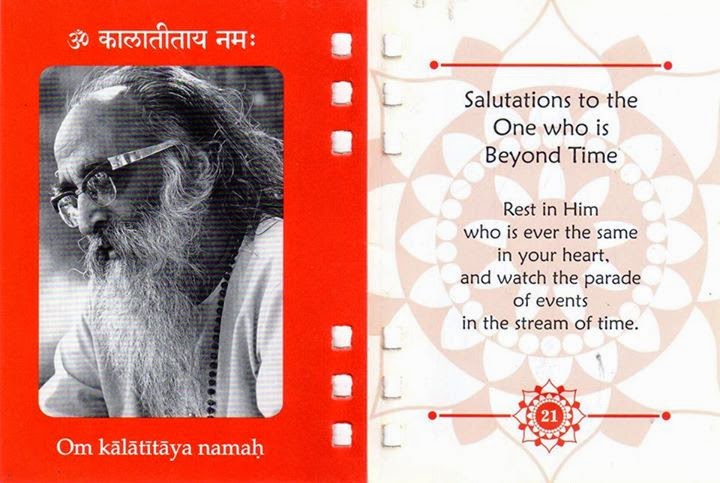Gita : Ch-12. Slo-3&4. Discussion-5
Srimad Bhagavad-Gita :
Chapter-12. ( Bhakti-yogam)
Slokam - 3 & 4.
(3)
ye tvaksharamanirdesyam avyaktam paryupasate,
sarvatragamacintyam ca kutasthamacalam dhruvam.
(4)
sanniyamyendriyagramam sarvatra samabuddhayah,
te prapnuvanti mameva sarvabhutahite ratah.
indriyagramam samniyamya = contolling all sense-organs as necessary;
sarvatra samabuddhayah = exclusively and with maximum balanced mind;
sarvabhutahite ratah = taking care and interest towards the welfare of complete living things;
ye tu = one who;
arvatragam acintyam = all-pervading and unimaginable ( inconceivable );
kutastham acalam = in the center and immovable;
dhruvam anirdesyam = permanent ( fixed ) and indefinite;
avyaktam aksharam = unmanifested and which is beyond the perception of the senses ( Brahmam )
paryupasate = practice Upasana;
te mam eva prapnuvanti = they attain Me only.
Discussion-5.
This understanding makes them sympathetic to the well being of all jivas or embodied beings: plants, animals, humans and demigods while meditating incessantly upon the imperceptible atma or eternal soul within themselves and within all sentient beings. Such aspirants also reach unto the brahman and are released from samsara the perpetual cycle of birth and death achieving moksa or liberation from material existence. Because the atma is eternal it is imperishable and different from the physical body which is perishable. Because the atma has a spiritual form it is immutable and changeless whereas the physical body is changing from birth to death. The conclusion is that the votaries of the impersonal brahman who worship the imperishable unmanifest attain that which they meditate upon being the impersonal brahman which is the effulgence of the Supreme Lord's energy and this affirms the ancient Vedic aphorism: As one worships the Supreme Lord so does one become.
The question might arise why is not the impersonal path superior. Lord Krishna answers this in this verse and the next. Although those who contemplate, reflect upon, meditate on and worship the abstract, impersonal, imperishable brahman or the spiritual substratum pervading all existence can eventually attain Lord Krishna as well; it is extremely difficult to do so. This is because the characteristics of the brahman are beyond the ability of the mind to comprehend. Why so? Because although it is a reality the brahman is avyaktam or devoid of material qualities and attributes. Thus it is acintyam or inconceivable and not possible to be conceptualized. It is anirdesyam or indescribable and cannot be expressed by words because it is unable to be conceived. Although it is sarvatra-gam or all pervading it is unmanifest possessing no form and cannot be perceived, As it is kuta-stham it is unchanging and thus never changing it is dhruvam or eternal and everlasting. The rest is clear.
It has been shown how the Supreme Lord and His sakti or spiritual feminine potency known as Sri Lakshmi are both unborn and eternal. When all else ceases to exist at the time of universal dissolution the Supreme Lord and His sakti being unaffected facilitate the next cycle to start creation anew. The Supreme Lord is called akshara the absolute and ultimate source of all. His sakti is called kshara who is limited to the extent that she remains dormant until the Supreme Lord begins creation. At that time the dual nature of the Supreme Lord and His sakti activates the creative energy by which such interaction causes the phenomena in the material nature for unlimited plethora's of species, forms and names of beings pouring into existence. The internal unified form of the Supreme Lord and Sri Lakshmi are known as akshara and kshara and their external manifestations are know as Purusha the Supreme Personality and prakriti the material substratum pervading all physical existence.
Next : Slokam-5.
To be continued ...





Comments
Post a Comment